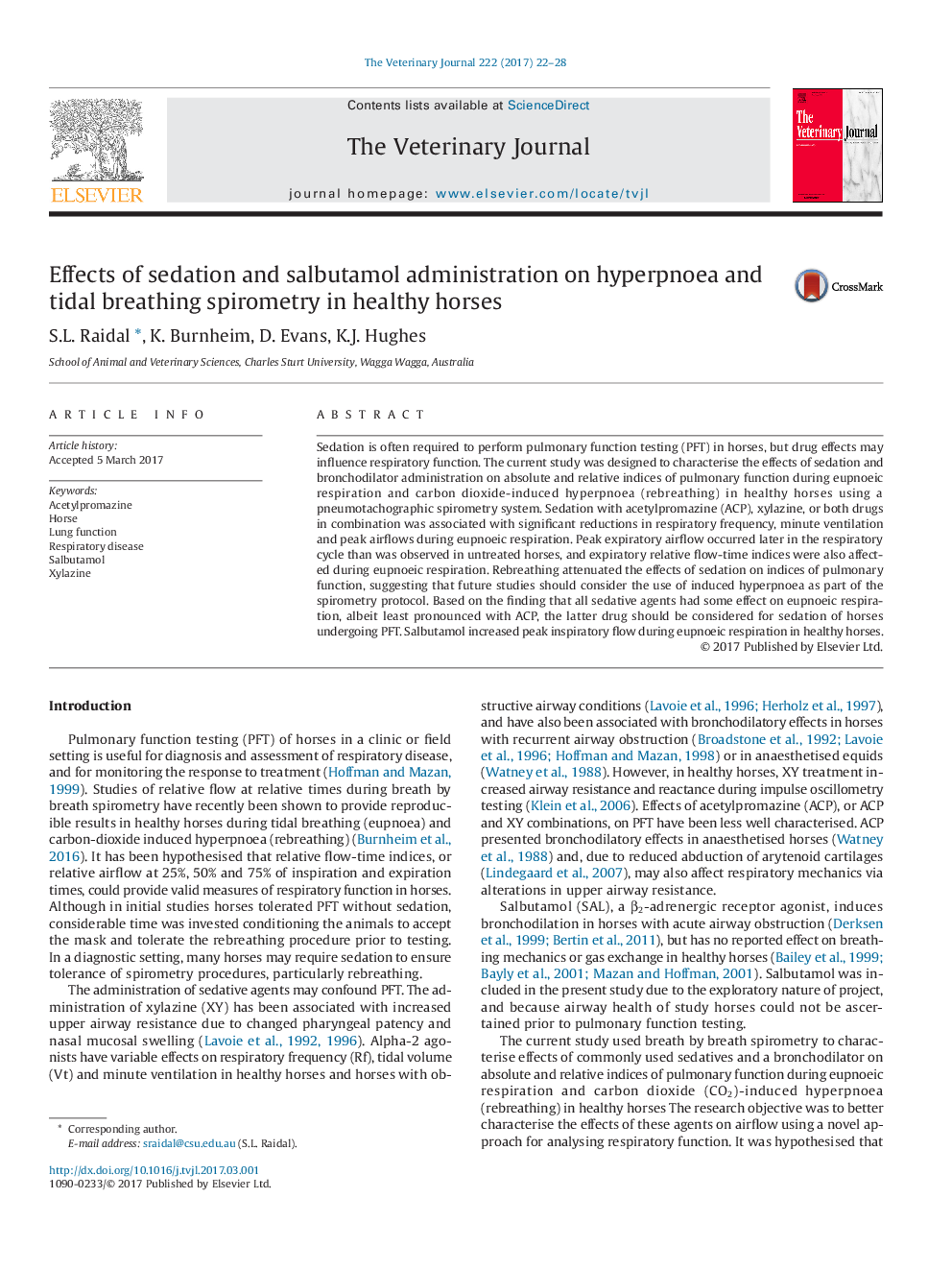| Article ID | Journal | Published Year | Pages | File Type |
|---|---|---|---|---|
| 5544896 | The Veterinary Journal | 2017 | 7 Pages |
Abstract
Sedation is often required to perform pulmonary function testing (PFT) in horses, but drug effects may influence respiratory function. The current study was designed to characterise the effects of sedation and bronchodilator administration on absolute and relative indices of pulmonary function during eupnoeic respiration and carbon dioxide-induced hyperpnoea (rebreathing) in healthy horses using a pneumotachographic spirometry system. Sedation with acetylpromazine (ACP), xylazine, or both drugs in combination was associated with significant reductions in respiratory frequency, minute ventilation and peak airflows during eupnoeic respiration. Peak expiratory airflow occurred later in the respiratory cycle than was observed in untreated horses, and expiratory relative flow-time indices were also affected during eupnoeic respiration. Rebreathing attenuated the effects of sedation on indices of pulmonary function, suggesting that future studies should consider the use of induced hyperpnoea as part of the spirometry protocol. Based on the finding that all sedative agents had some effect on eupnoeic respiration, albeit least pronounced with ACP, the latter drug should be considered for sedation of horses undergoing PFT. Salbutamol increased peak inspiratory flow during eupnoeic respiration in healthy horses.
Related Topics
Life Sciences
Agricultural and Biological Sciences
Animal Science and Zoology
Authors
S.L. Raidal, K. Burnheim, D. Evans, K.J. Hughes,
